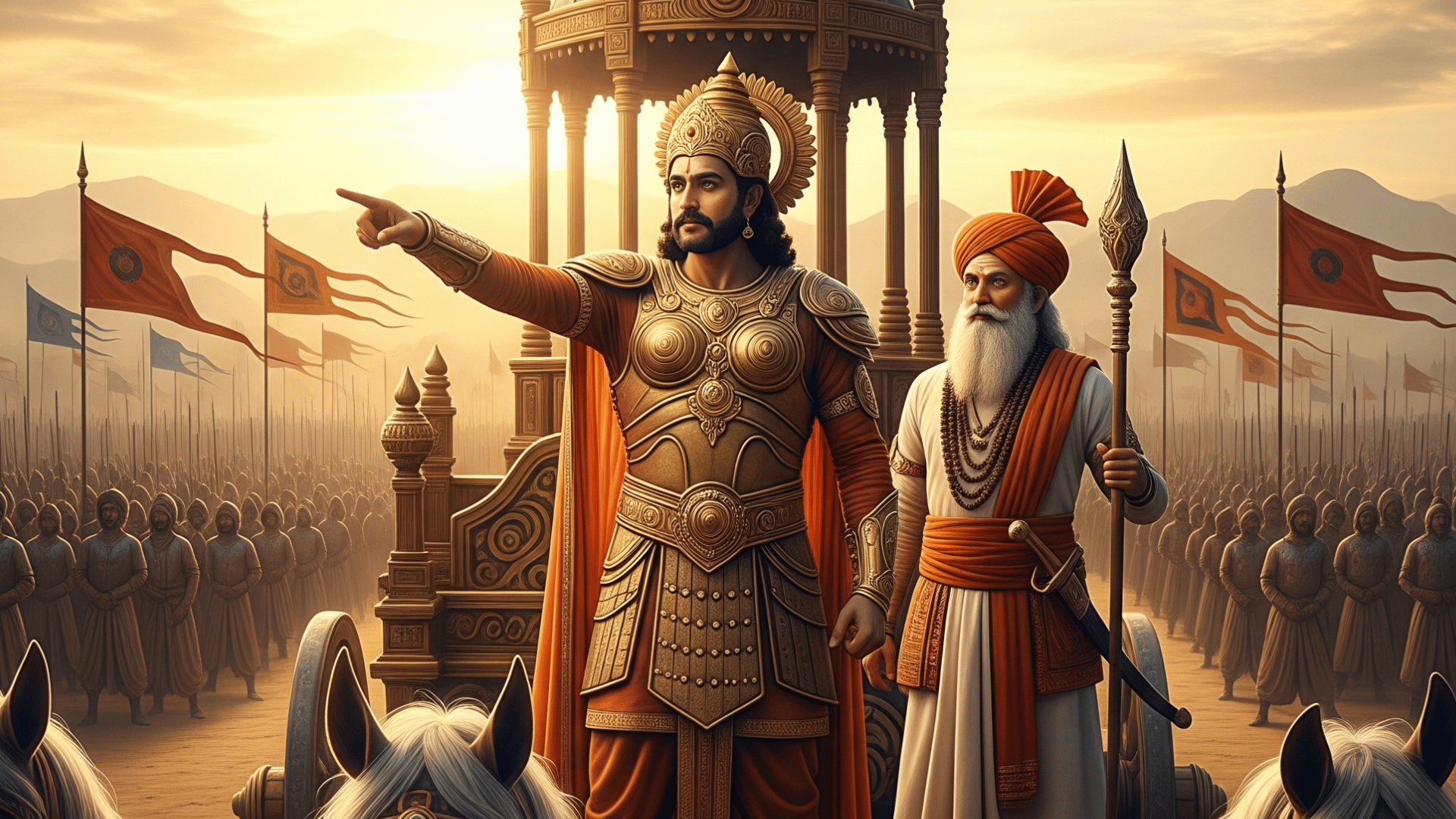
Chapter 1 – Arjuna’s Despondency
Verse 2
Drshta, tu, Pandavaanikam’, vyudam’, DuryodhanH, tadaa,
Aachaaryam’, upsangmya, raja, vachnam’, abrveet’ ||2||
This scene takes place just before the start of the great war.
Dhritarashtra’s minister, Sanjay — blessed with divine vision — narrates the events of the battlefield as he sees them.
As soon as Duryodhana, the leader of the Kaurava army, sees the Pandava army arranged in a well-structured (strategically aligned) formation, a stir begins within the layers of his confidence.
He immediately approaches his teacher Dronacharya after observing the army — this action clearly shows that he is not inwardly confident. Despite being a king, he turns to someone else for assurance — a sign of inner conflict and fear.
- “Drishtva” (having seen) — This doesn't merely signify physical seeing, but also reflects an internal realization or a subtle experience.
- “Pandavānikam vyoodham” — means the Pandava army is not just standing there in numbers, but is impressively and strategically arranged for battle. This implies that it is armed not only with weapons but also with righteousness and moral values.
- “Rājā vachanam abravīt” — Here, Duryodhana refers to himself as “Raja” (King), but the fear within him reduces him to an ordinary, insecure person.
Inner Indicators and Psychological Perspective:
This verse reveals Duryodhana’s insecurity, fear, and psychological imbalance.
He knows well that the Pandavas stand on the side of dharma (righteousness), and that Kurukshetra is a “Dharmakshetra” (a sacred battlefield of righteousness).
There’s a fear inside him that all these forces — dharma, morality, and strategy — may lead to his defeat.
But he doesn't express this fear directly — instead, he disguises it as a “strategic discussion” and approaches his teacher.
Message for Us:
This verse teaches us that when we are on the path of injustice or adharma, fear first arises within us.
A person who is truly self-confident does not feel fear before a battle even begins — but Duryodhana’s fear is evident in his actions and words.
This shloka warns us that when our path is wrong, our own inner weakness destroys us before any external force can.
















